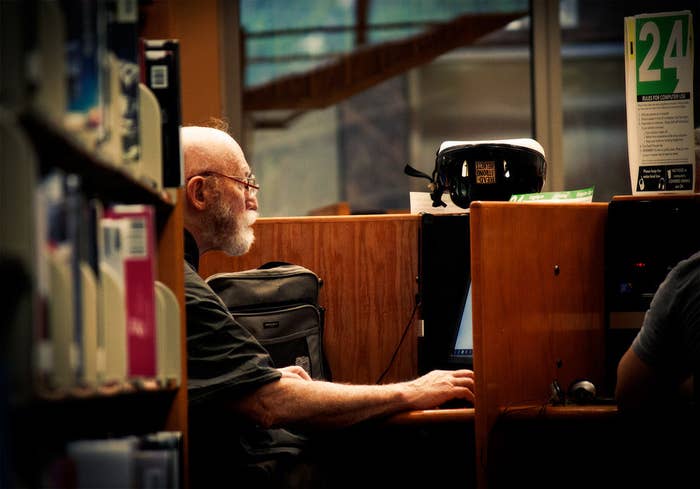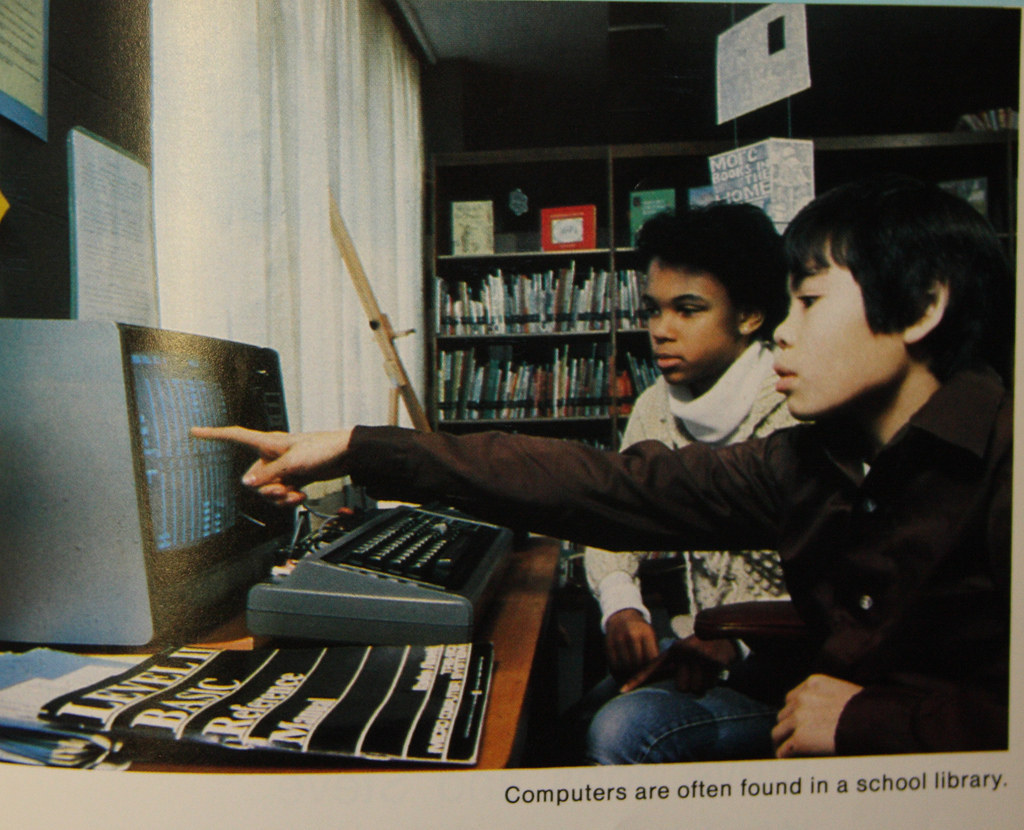
Sprint will effectively sever broadband access for as many as 300,000 people Friday — specifically affecting schools, libraries, and communities already disconnected from technology for economic reasons. Planned for 12:01 am Friday, the shutdown will occur as Sprint updates its wireless network, retiring an older WiMAX system in favor of the faster and more widely adopted LTE standard.
The cut-off will hit more than 40 schools, 60 libraries, and 1,800 nonprofit organizations that rely on the WiMAX for internet access. The organizations Mobile Beacon and Mobile Citizen, which provide institutions with discounted WiMax broadband service for $10 a month, have been tangling with Sprint for months in an effort to move their users over to the new network before the shutdown, and on Tuesday they asked a Massachusetts court for a pause in the changeover.
"There are going to be a significant number of people shut out in the cold," said John Schwartz, founder and president of Mobile Citizen. "We have disabled people who can't leave the house affected; we have students who can't do their homework affected. This is a real thing."

At the court hearing Tuesday, a Massachusetts state court judge declined to rule from the bench on a stopgap measure that would delay the shutdown, after hearing arguments from attorneys for Sprint and the nonprofits affected. The judge is expected to make a ruling this week, before the cut-off deadline.
Sprint spokesperson Stephanie Walsh said the company "appreciated the opportunity to present our position on this contract dispute at today’s hearing and will await the Judge’s decision." She declined to comment further.
While the nonprofit internet providers and advocates have described the dispute as one over internet access to low-income communities, Sprint has maintained that the matter is a "contract dispute," and it is within its rights to retire the WiMAX network in favor of the 4G LTE network used by most of its customers.

The roots of the current conflict extend back to the 1980s, when the Federal Communications Commission handed over parcels of wireless spectrum — the "airwaves" that are the highly-valued lifeblood of the mobile industry — to be used for educational purposes.
In 2006, a nonprofit called Voqal — a parent entity to Mobile Citizen — agreed to lease the spectrum it controlled to telecommunications operator Clearwire, which was rolling out a wireless broadband service using the WiMax system. In return for the spectrum, Voqal was guaranteed cash payments as well as access to the network and mobile hotspots for providing internet access.
The history of Clearwire is a convoluted tale of Byzantine corporate dealmaking, but to cut a long story short, in 2013, Sprint acquired all of Clearwire, along with the spectrum in question. And now the company plans to end its WiMAX internet service entirely, devoting the spectrum to its main LTE mobile network.
Voqal will keep getting paid for its spectrum. But the internet providers must switch over all their users to the main LTE wireless broadband network, which they say Sprint hasn't made easy for them, by failing to provide necessary devices and management systems. The deal with Clearwire meant Voqal would receive so-called access royalties in addition to financial royalties, and this access is what the organization wants back.
"Clearwire essentially goes from being an operating company and service provider to a spectrum provider for Sprint, once the WiMAX network is shut down," said John Schwartz, founder and president of Mobile Citizen.

Mobile Beacon and Mobile Citizen are currently looking into whether they can legally rescind permission for Sprint to use their spectrum if the company continues to provide inadequate Internet access for their users, according to Schwartz, as the FCC originally reserved their spectrum in support of education and to to serve the public interest.
But that's a long-term goal. For the moment, the organizations are focused on the request for an injunction that could delay Friday's shutdown, an act that will effectively disconnect those customers who have not yet switched over to the new network — which is most of them, Schwartz said.
Earlier this month, a Sprint spokesperson confirmed there was a dispute between the company and nonprofits over contract terms, but denied that Mobile Beacon and Mobile Citizen's customers were having difficulties transitioning to the LTE network. The spokesperson told The Verge that 75% of those on the WiMAX network had successfully migrated. Spokespeople from the affected nonprofits dispute this.

The injunction being considered by the court requests emergency relief for Mobile Beacon and Mobile Citizen users, including an order for Sprint to maintain its WiMAX network for 90 days to give the nonprofits more time to move people to LTE.
"We’re hearing from disabled adults that rely on our service to order groceries, pay bills, and monitor their prescriptions and medical information online," said Katherine Messier, managing director of Mobile Beacon. "We are asking the court to preserve their lifeline to the world.”
Messier stressed that the organizations' goals are not to end Sprint's access to spectrum, just that "as a condition of that access, they need to honor the terms and the purpose of what that spectrum is supposed to be used for, and that is education."
"We are the ones who provide the programs and have the relationships with the schools," she said. "We want to make sure that Sprint gives them the appropriate level of service."

In a letter to Sprint's CEO, 43 organizations including the Central New York Library Resources Council, Color of Change and Habitat for Humanity asked the company to delay the network transition. Schoolchildren, low-income adults, and seniors will all be "left in the dark," they wrote.
"Some of the schools have other options for internet access, but our digital divide customers just don’t," said Kristen Perry, a spokesperson for Voqal. "There are no other services they can afford."
"We think of Internet access like we think about electricity, or desks,” said Brian Bolz, the CEO of Beehively, which provides technological support to schools across Northern California and is facing the prospect of broadband loss when WiMAX shuts down Friday. "We expect all three. You don’t come into school wondering if you’ll have enough power today... And you certainly don’t expect to reach a limit in how much you can use your desk."
Last month, Mobile Citizen and Mobile Beacon filed a lawsuit charging Sprint with failure to uphold its obligation to provide unlimited internet service to their customers.
These disputes come shortly after the organizations debuted a national advertising campaign, quoting the telecom company's professed commitment to closing the digital divide: “At Sprint, we believe Internet access should be a basic human right."
